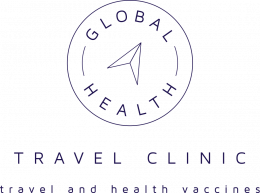COVID-19: ADVICE FOR HUMANITARIAN AID WORKERS
Global Health have seen a steady stream of travellers going abroad for humanitarian aid or volunteering purposes.
The Foreign and Commonwealth Development Office (FCDO) currently advise British nationals against all but essential travel, on the basis of the COVID-19 risk.
For humanitarian aid workers, deployment overseas may be considered essential. Government regulations state that it is reasonable to leave the UK to provide voluntary or charitable services, where it is not possible to do that from the UK. People who are employed by an international organisation as an expert or on a mission are exempt from restrictions on leaving the UK.
Some things to consider;
Check you are in-date for all routine vaccines as recommended in the UK (including MMR and any other vaccines recommended for healthcare workers). Information on the new UK COVID-19 vaccine programme and priority groups is available on the Public Health England website.
If appropriate, you should contact a travel clinic for advice specific to you and your role. Ensure you are fit for your deployment, discuss any health concerns with your occupational health department or GP and establish what medical support is available to you at your destination.
COVID-19 whist travelling
Make sure you are familiar with your deploying organisation’s assessment and guidance regarding your risk of COVID-19. This should include their COVID-19 mitigation strategy for workers, any appropriate training, and the protective measures they have in place, including personal protective equipment (PPE) provision, at your destination.
Recent research found only a small number of COVID-19 cases, only 44/1.2 billion passengers were associated with a flight journey. However, there is definitive evidence of inflight transmission. Wearing a mask during a flight appears to add an extra layer of protection. However, as COVID-19 virus is found in respiratory droplets, transmission can occur by direct person to person contact or indirect contact with contaminated items or surfaces. It is essential that you take good hygiene measures during and beyond your journey to minimise infection risk.
Be aware of the surfaces you touch. Wash hands regularly with soap and running water for at least 20 seconds. Use an alcohol-based hand sanitiser that contains at least 60% alcohol if soap and water are not available.
Avoid touching your eyes, nose, and mouth with unwashed hands. Avoid close contact with people who are sick. Cover your cough or sneeze with a tissue, then throw the tissue in a bin and wash hands with soap and water. Ask your airline about physical distancing measures or other measures in place to reduce or limit physical contact with potentially infected passengers aboard the aircraft. Avoid moving from your seat unnecessarily but exercise your legs (flex and extend the ankles) as much as possible to encourage blood flow from the lower leg. Use the designated toilet for your area only and wash your hands before leaving the toilet. If you are unwell on the flight please stay in your seat and follow any instructions provided during the flight, and contact the air crew as soon as possible.
Be aware of your personal safety and always follow your deploying organisation’s destination specific security recommendations. You should contact your healthcare provider urgently for medical attention if you become unwell.
To reduce the risk of COVID-19 infection, you should take prevention measures which include:
Maintaining good hand and personal hygiene. Wash hands regularly with soap and water or alcohol based disinfectant gel before handling or consuming food. Avoid close contact with anyone with cold or flu-like symptoms, or who appears unwell. Avoid sharing personal items. Follow guidelines on social distancing measures which may be in place.
Follow good food and water hygiene.
If appropriate to the country you are working in, follow insect bite avoidance measures.
If you are deployed to a malaria risk country, be aware of the symptoms of malaria and the need for prompt treatment.
Follow the ABCD of malaria prevention:
- Awareness of malaria risk
- Bite prevention
- Chemoprophylaxis – appropriate antimalarials and compliance with regime
- Diagnosis – prompt diagnosis and treatment without delay
For further details about travel and travel health please see the following. Our lead clinician at G
https://travelhealthpro.org.uk/news/516/covid-19-advice-for-humanitarian-aid-workers
https://www.gov.uk/foreign-travel-advice

